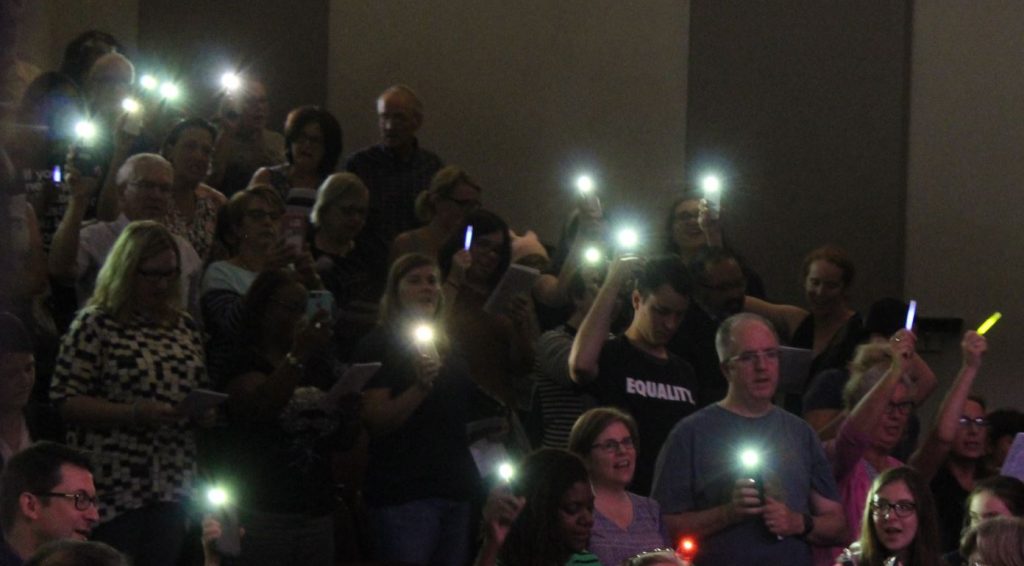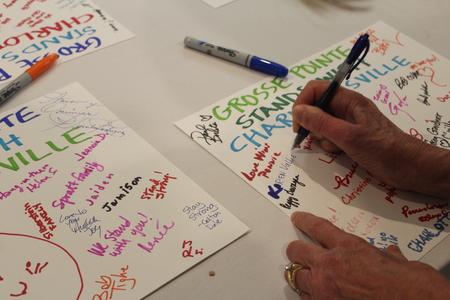How Do We As a Community Move Forward After Racial Violence and Rhetoric?
Is it better when the sheets come off and the faces lit by tiki torches make the rounds of social media?

Residents hold vigil at the Grosse Pointe War Memorial to honor the victims of the violence in Charlottesville, VA in August 2017. Sandra Svoboda/WDET

WDET and Detroit Today has spent time this summer looking back 50 years in Detroit and talked to one another about the impact racial distrust still has on us today.
After this past week’s violence in Charlottesville, VA, many people are trying to understand the legacy of the Confederacy – and who gets to decide what that history is.
Which stories deserve to be told? How do we present a variety of viewpoints about what that war continues to mean without glamorizing the group that fought for oppression and rebellion? And why does the fact that that war was over the enslavement of a group of people keep getting lost?
Is this crisis — in some sort of twisted way — good for America? Is it better when the sheets come off and the faces lit by tiki torches make the rounds of social media? Accountability has come for some. Are we making progress when we debate whether or to what extent hate speech is protected by the cherished First Amendment?
This week, there were several vigils across Southeast Michigan in honor of victims of the violence in Charlottesville, including one hosted by the Grosse Pointe War Memorial. Hundreds of people turned out for that gathering, including members of several community groups and churches.
On Detroit Today, WDET’s Sandra Svoboda talks first with POLITICO Magazine national political reporter Tim Alberta about the mood in the nation’s capital after these events and President Trump’s response.
“It’s difficult to fully articulate for people outside of the beltway just how dark things feel in Washington D.C. right now,” says Alberta. “And it is across party lines, it’s across ideological divides. There is an awful lot of pessimism and doom and gloom here in D.C. right now and it feels just like a cloud just sort of hovering over the city.”
Svoboda also speaks with Khari Brown, professor of sociology at Wayne State University whose expertise is in race, religion and politics.
“All people — we are tribal,” says Brown. “We do tend to cling to groups that share our own experiences. But I think what happens is that political leaders… can manipulate these feelings for their own political ends.”
Click on the audio player above to hear the full conversation.
